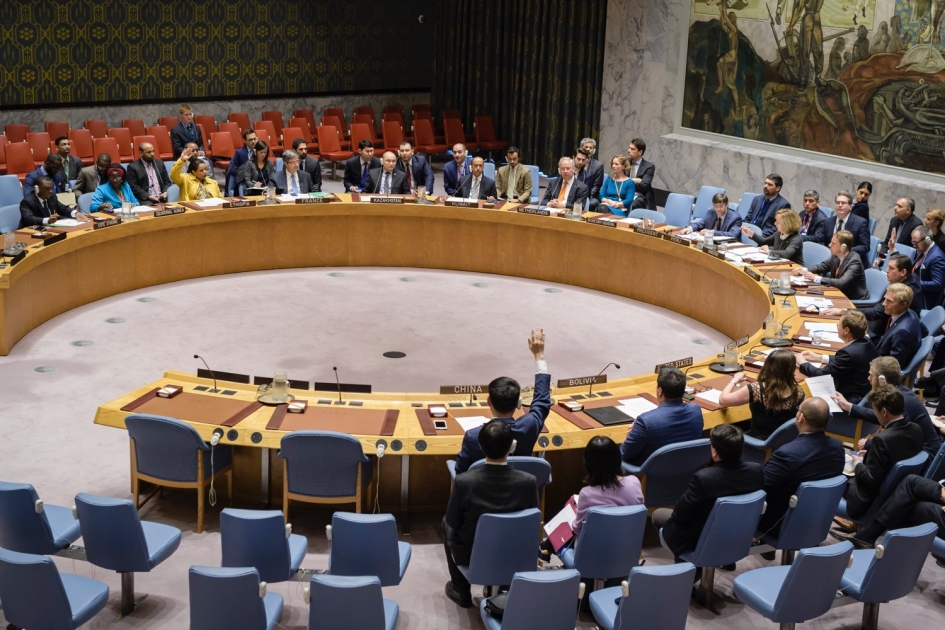Statement by Mr.Vladimir Safronkov, Deputy Permanent Representative of the Russian Federation to the United Nations, at the Security Council after th evote on the resolution on the sitiation in Western Sahara
The Russian Federation could not support resolution 2414 (2018).
The main problem was that the process of drafting and agreeing the decision was neither transparent nor consultative. We note, unfortunately, that none of the principled and properly justified comments that we repeatedly directed to the authors — including those of a compromise nature — was taken into account.
A series of useful proposals put forward by the other members of the Council were also met with no response. As a result, the text remains unbalanced and the entire situation strengthens our doubts about the issue of informal country-specific penholderships in the Security Council. We decided not to block the resolution because we accept the value of continuing the work undertaken by the United Nations Mission for the Referendum in Western Sahara.
However, had we voted in favour of we would have abandoned our principled position in support of the existing foundations of a settlement, which, pursuant to the resolutions of the Security Council, is based on the fundamental principle that any model of settlement must be mutually acceptable.
Instead, the main emphasis of the resolution is placed on such shaky and contradictory categories as practicability and realism, which could open the way for all kinds of equivocal interpretations. We will remain an impartial and balanced player that maintains contacts with all the regional parties with which we maintain historical and friendly relations.
We must warn, however, that the document that was adopted today, contrary to the expectations of its sponsors, could end up having a negative effect on the efforts of the new Personal Envoy of the SecretaryGeneral for Western Sahara, Mr. Horst Köhler, to revive the political process. Attempts to accelerate the process could lead to an outcome that is opposite to what is sought. In that regard, we believe that a review of the mandate of the United Nations Mission is unacceptable, and we do not support efforts to mandate the Mission with the authority to monitor the human rights situation.
In addition, we absolutely do not understand why the resolution includes passages concerning generic aspects of peacekeeping, despite the fact that that is the prerogative of the Special Committee on Peacekeeping Operations of the General Assembly. For example, the work on establishing benchmarks for the effectiveness of peacekeeping operations — which, incidentally, should apply not only to the military and the police but also to the civilian components of a mission, as well as the units at Headquarters that oversee them — has not been completed. Why are we trying to prejudge events?
With regard to the initiatives of the SecretaryGeneral to standardize the culture of performance, neither we nor the troop-contributing countries fully understand what that entails. What is it, and how can we welcome it at this stage? The text also contains a series of provisions that undermine the impartial and balanced approach of the Security Council to the issue of Western Sahara, which we do not support.
We are convinced that overcoming the differences and achieving a just and lasting settlement will be possible only by political means on the basis of the relevant resolutions of the Security Council. The ultimate formula must be acceptable both to Morocco and to the Polisario Front, and provide for the selfdetermination of the people of Western Sahara in the framework of procedures in line with the purposes and principles of the Charter of the United Nations. That is the key concept underpinning a settlement in Western Sahara. It is unacceptable to try and replace it with other formula.
In conclusion, I underscore that the United Nations Mission for the Referendum in Western Sahara plays an exclusively stabilizing role in establishing conditions on the ground conducive to the resumption of dialogue between Morocco and the Polisario Front. We need to encourage joint efforts to launch the negotiating process. Let us not decide the outcome in place of the parties. We are concerned about the vacuum in the process, and the failure to settle the situation in Western Sahara can be exploited by various extremist forces, which would have a negative impact the military and political situation in the entire region.
